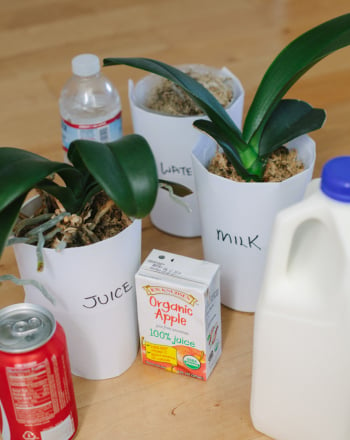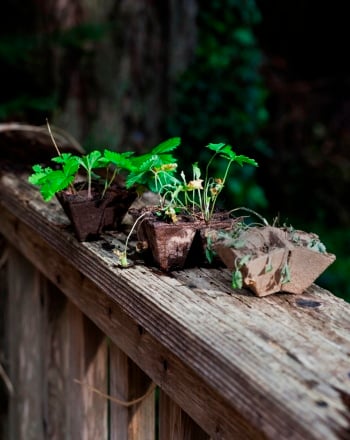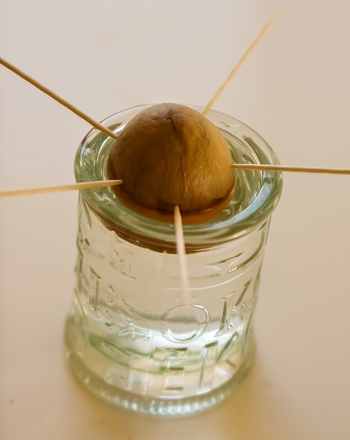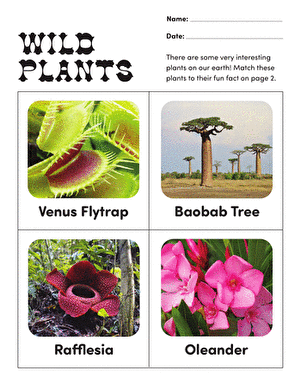Science project
Making Plants Grow
2011 VIRTUAL SCIENCE FAIR ENTRY
Abstract
Most plants come from seeds. In my experiment, I wanted to learn how long it takes a seed to start to grow. I planted pinto bean seeds and kidney bean seeds to see how fast they would grow. I planted some pinto bean seeds and kept them in the dark to see if they would grow. I checked the seeds two times a day to see when they germinated.
What I thought would happen (my hypothesis) was that all the seeds would germinate and grow at different times. My results showed that most of the seeds germinated on day 3 or 4. We did have some seeds that took longer and 2 that did not germinate at all.
Type
Life Science
Grade
First Grade
Difficulty of the Project
Easy
Cost
Safety Issues
- Wash hands
- Make sure an adult is present
- Be careful when touching germinated seeds so that you don’t pull them out.
Time Taken to Complete the Project
Two weeks
Objective
I wanted to learn how long a pinto bean seed would take to germinate and compare it to a kidney bean seed and a pinto bean seed planted in the dark.
Materials and Equipment
- Paper towels
- 3 – 10 oz. clear plastic cups
- 12 pinto beans
- 6 kidney beans
- 2 paper lunch bags
- Tap water
- Magnifying glass
- Journal to write down results
- Digital Camera
- The materials were found at the grocery store and in our house and were easy to find.
Introduction
One way a plant grows is from a seed. When a seed sprouts it is called germination. The first sign that a seed is sprouting is when the seed coat or case breaks open and the root (or hypocotyls) pushes out. All seeds do not germinate in the same amount of time. The time it takes for a seed to begin to grow is called germination starting time (GST).
Terms and Concepts for Background Research
We read about seed and seed parts, plants and plant parts, germination, sprouting and germination starting time.
Research Questions
- How long will it take for a pinto bean seed to germinate?
- Do all seeds take the same amount of time to germinate?
- Do seeds need light to germinate?
Experimental Procedure
- Put paper towel around the outside of a plastic cup
- Put crumpled up paper towels in the middle of a plastic cup
- Put seeds around the outside of the paper towel
- Water down the paper towels
- Cover the cup that will grow in the dark with 2 paper bags put together
- Check seeds 2 times a day for germination
- Mark outside of the cups as the seeds sprout
- Write down what happened in journal
- Take pictures
Results
The pinto bean seeds germinated with no light were the fastest, at day 3 in the morning (4 seeds), day 4 in the morning (1 seed) and day 6 in the afternoon (1 seed). The pinto beans germinated in the light were next, germinating on day 3 in the afternoon (3 seeds), day 4 in the morning (1 seed), day 4 in the afternoon (1 seed) and 1 seed did not germinate. The kidney beans took the longest, germinating on day 4 in the morning (2 seeds) and afternoon (1 seed), day 7 in the afternoon (1 seed) and 2 seeds did not germinate.







Conclusions
I learned that the same kind of seeds do not all germinate at the same time – some are faster, some are slower and some do not germinate at all. Different kinds of seeds germinate in different times.
Questions for Further Research
- What if I used seeds that are not beans?
- Would the germination time be different if I did this at a different time of year?
- One seed is planted, but how many more seeds will that new plant have?
Bibliography
Ayers, Patricia. Kids Guide to How Plants Grow. New York: The Rosen Publishing Group, Inc., 2000.
Carlson, Laurie. Green Thumbs -- A Kid's Activity Guide to Indoor and Outdoor Gardening. Chicago : Chicago Review Press, 1995.
Fowler, Allan. From Seed to Plant. New York: Childrens Press, 2001.
Hickman, Pamela. A Seed Grows, Toronto, Ontario, Canada: Kids Can Press, LTD., 1997.
Holub, Joan. Spring is Here – A Story About Seeds. New York: Aladdin, 2008.
VanCleve, Janice. Plants – Mind-Boggling Experiments You Can Turn into Science Fair Projcts. New York: John Wiley and Sons, Inc., 1997.
Wade, Mary Dodson. Seeds Sprout. Berkleyheights, N.J.: Enslow Bublishing, Inc., 2009.
Education.com provides the Science Fair Project Ideas for informational purposes only. Education.com does not make any guarantee or representation regarding the Science Fair Project Ideas and is not responsible or liable for any loss or damage, directly or indirectly, caused by your use of such information. By accessing the Science Fair Project Ideas, you waive and renounce any claims against Education.com that arise thereof. In addition, your access to Education.com's website and Science Fair Project Ideas is covered by Education.com's Privacy Policy and site Terms of Use, which include limitations on Education.com's liability.
Warning is hereby given that not all Project Ideas are appropriate for all individuals or in all circumstances. Implementation of any Science Project Idea should be undertaken only in appropriate settings and with appropriate parental or other supervision. Reading and following the safety precautions of all materials used in a project is the sole responsibility of each individual. For further information, consult your state's handbook of Science Safety.













